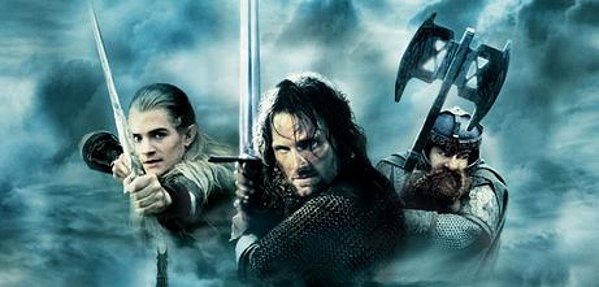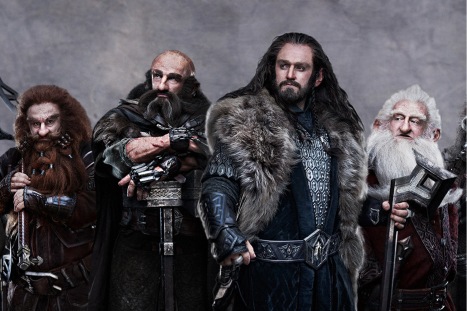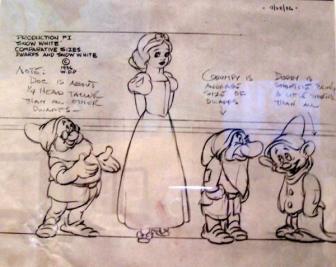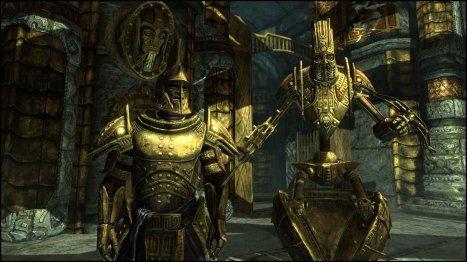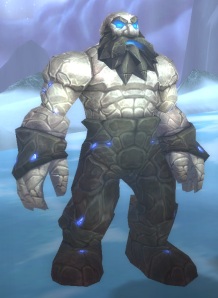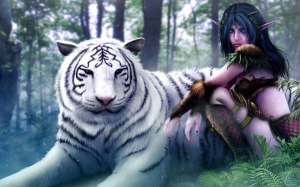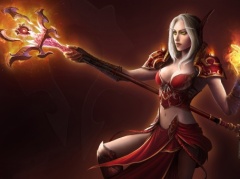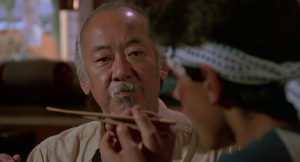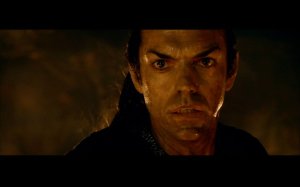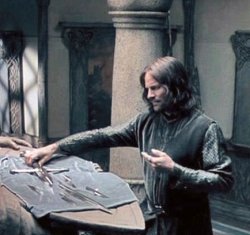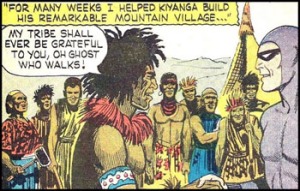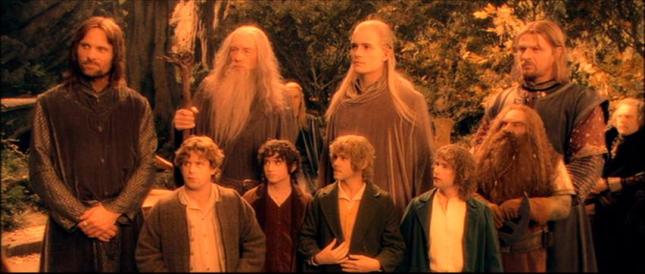Disclaimer: I have never read an entire book by J. R. R. Tolkien. I think I’m pretty knowledgeable enough to comment on fantasy inspired by him anyway. If you disagree, go fuck yourself.
With the release of The Hobbit ( 2012 ) comes a chance for the Dwarves to get their moment on the big screen. While Dwarves have always been stock fantasy humanoids in fantasy fiction, they’re rarely focused upon when compared to elves, who have cornered the market both in terms of action, magic, scholarship, and perverse sexual lust. In the original LOTR films, Gimli was the only Dwarf and he sucked so much that he couldn’t even ride a horse by himself. Meanwhile, Legolas could kill mammoths and drink like a frat guy. And of course, the human Aragorn became a king. Whether intentional or not, the dynamic between these characters’ races seem to establish a pecking order of sorts; specifically a hierarchy that goes Elf > Human > Dwarf.
“A short, sturdy creature fond of drink and industry”-Dwarf Fortress
Dwarves diminutive role in the implied fantasy caste system is both figurative and literal. They are obviously “dwarven” in the scientific sense i.e. they’re midgets. In the Tolkien verse,their smallness isn’t as egregious considering the existence of hobbits and goblins, but it’s still touched upon occasionally in the films ( “I’d chop off your head, if it did not sit but a few feet from the ground”-Eomer to Gimli in The Two Towers [2002] ). As a man of 5″7, i’m all too aware of the lack of social status that comes with shortness (sob). In addition to their lack of height, they mostly portrayed as lacking the “pizazz” most fantasy being have. When’s the last time you’ve seen a Dwarven mage in fiction? A Dwarven druid, maybe? Probably never. Dwarves tend to be fairly anti-mystical and instead go in the exact opposite direction as master industrialists.
In the Elder Scrolls series, Dwarves build automatons and other machines using the trapped souls of elves ( Gimli would smile at the notion ). In World of Warcraft, the Dwarves were created by the Titans to craft the world,making them the first artisans.
In both interpretations, the Dwarves embody materiality: steel and stone, respectively. Their materiality is shown to be the bane of their civilization: in The Fellowship of the Ring ( 2001 ), the thirst for riches led the Dwarves to dig too deep and come upon the hellish Balrog. In The Hobbit, Dwarven King Thrain’s greed leads to an attack by the dragon Smaug and the loss of his homeland. Notably, both of these tragedies happen in subterranean strongholds, the usual home of Dwarves in fiction. In many cultures, the underground world is often thought to be a site of degradation, specifically of the soul. This could possibly be due to the sordid history of mining, which yielded both great riches and great fatalities. In Greek myth, Hades was both the god of finance and the dead. He lorded over both in a realm beneath the Earth. The Christians utilized this concept in the popular view of Hell. Satan is sometimes even considered to be the true ruler of the material realm, giving him dominion over all material wealth.
The Dwarves’ materiality and subterranean dwellings communicate a “baseness” that is not as prevalent in other two races. Rarely do we hear of Dwarven deities or mysticism, they instead focus on their treasure. While Tolkien based much of his tales on Norse mythology, the Dwarves are especially “pagan” visually ( Saxon features ) and culturally ( obsession with treasure, warlike nature ) in comparison. This casts them in a more primal light than the humans and elves, who have more progressive ideologies. The Dwarves are the anchors of fantasy humanoids; they maintain the old ways. In the bad sense, they serve as representatives of things humanity should move beyond ( war, greed ). In the good sense,they represent the “hardiness” that humans desire in themselves. Despite their follies, the Dwarves always manage to build. The Hobbit tells the tale of the Misty Mountain Dwarves crusade to reclaim their homeland, even without the help of most of the clan. Their campaign is meant to be reminiscent of the Jews ( according to Tolkien himself ) who suffered slavery and segregation in the first few centuries, yet still managed to propagate their religion and culture. In a way, Dwarves’ primordial nature is what makes them heroic. They have some of the worst vices of humanity, yet they continue to forge ahead (pun unintended). 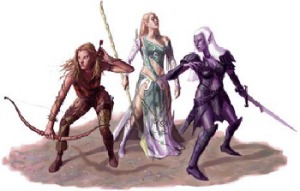 “Everything you can do elves can do better, elves are much better at everything than you.” –Lords and Ladies ( Discworld series )
“Everything you can do elves can do better, elves are much better at everything than you.” –Lords and Ladies ( Discworld series )
On the very opposite end of the racial spectrum are the Elves. If they could be summed up in one word, it would be “better”. Elves are distilled awesome. Even though elves have been all over the map in terms of image (the Keebler elves, for instance), Tolkien has cemented the view of elves as the pinnacle of aesthetic. His elves are ethereal figures with long hair, lean bodies, and blemishless skin. They don’t even have facial hair, unless you’re counting those dark elves and their Evil Spock goatees. It’s noteworthy that the Elves, unlike the Dwarves, have no overt phenotypes that they’re modeled on. Out of the trifecta, they are the furthest away from humans visually. This is often because the Elves are the “high” counterpoint to Dwarves “low”. Everyone looks like a human, ugly people look like Dwarves, but you WISH you could look like an elf.
Their foreignness is a way to set them apart in western fantasies; in World of Warcraft, anything related to Blood Elves is given a general “Oriental” aesthetic, whereas the Night Elves draw more from Native Americans visually. In Elder Scrolls, the “Dwarves”, who are actually a variation of elf, have weaponry and armor based on Mesopotamia. These cultures are very “unwestern”,and are often fetishised as well. Think of how many works use “magical Native Americans” ( Pocahontas [1995] ) or “wise Chinamen” ( The Karate Kid [1984] ) as mentors. In most narrative fiction, the proposed viewer will almost always be “white”, therefore that viewer would think of whites as being mundane ( and by extension, their knowledge ). While whiteness is awesome for day-to-day stuff ( like having a good credit score ), there will always be a few things that a whitey, no matter how mighty, can’t do. Hence, ethnic mentors!
Elves serve the same role as these stock racial figures by assisting humans, or at least giving them something to aspire to. This explains why Elves also tend to be more spiritual than their fellow humanoids. In Elder Scrolls, all of the Elves have an empathic connection to their deities, to the point that the devouring of Trinimac ( one of their gods ) caused a group of Elves to mutate into Elder Scrolls equivalent to Orcs. As part of their spirituality, they are often cast as guides. All of the Lord of the Rings films have an obligatory “meeting with the elves” which gives the protagonists guidance. In The Hobbit, Lord Elrond explains how to get to the Lonely Mountain’s secret door, which of course Thorin, the fucking prince of the dwarves, didn’t know about ( they really do suck ). 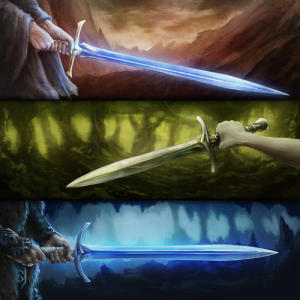 Not to mention that the three protagonists’ most effective weapons ( Gandalf’s Glamdring, Bilbo’s Sting, Thorin’s Orcrist ) are all Elven in design, despite the Dwarves supposed proficiency in industry.
Not to mention that the three protagonists’ most effective weapons ( Gandalf’s Glamdring, Bilbo’s Sting, Thorin’s Orcrist ) are all Elven in design, despite the Dwarves supposed proficiency in industry.
Despite Elves being so awesome, they are rarely cast as protagonists. The primary reason is said awesomeness; most narrative conventions encourage striving for something lacking. Anthropologists like Joseph Campbell, who was one of the first to propose an all-encompassing “monomyth”, compared a hero’s journey to a boy learning how to be a man. This is why the hobbits are such compelling protagonists; they are completely out-of-place in a war, therefore they have to make significant gains in order to accomplish their goals. The Elves, on the other hand, are portrayed as being so accomplished that no feat is beyond their doing.
What keeps them on the borders of the action is lack of incentive. The Elves have never lost a stronghold or been attacked by a stronger enemy, so they have no need to fight. This could arguably be considered their “fatal flaw”. In the western world, neutrality is often considered a great sin. This is why ideas of “American Exceptionalism” often points to our interventionism as such a virtue. The Elves decision to not involve themselves at the Misty Mountains ( in The Hobbit ) is in stark contrast to the Dwarves’ valiant efforts to protect them. This scene is used to bolster the heroism of the Dwarves, who are heavily built up as the scrappy underdogs of Middle Earth as opposed to the aloof Elves. Ironically, the Elves’ role as mentors and aloof nature makes them appear impotent. Don’t forget that when Isildur decides to not destroy the One Ring, Lord Elrond responds by doing absolutely nothing to stop him.
While some have explored why he wasn’t able to stop him in the literature, the film doesn’t suggest any possible explanation, leaving a viewer to assume that he just conceded to the King’s decision. Such impotence is often key to mentors in fiction. If the Campbellian model of narrative suggests that the protagonist is a boy becoming a man, the mentor is already a man. The only goal left for him is to perpetuate the process in another. The mentor has no personal growth potential left, which is why it’s okay, even beneficial, for him to die in order to force his ward to continue alone, such as in Star Wars ( 1977 ) or Django Unchained ( 2012 ). In real life, most parents’ mentoring is meant to shape children into themselves, preferably better versions. Hence why parents are culturally obligated to subordinate personal desires in favor of the child’s: it’s just more progressive.
In keeping with this, Elves are almost always cast as significantly older than humans and sometimes Dwarves, who are as mayflies to them. Their agelessness is a double-edged sword: it gives them wisdom, but also stagnates them. In The Fellowship of the Ring, Lord Elrond’s argument to Arwen as to why she shouldn’t pursue a relationship with Aragorn is to remind her that he will die and she will live, thus causing her heartache. Elrond suggest that the life of an Elf is one of detachment; if everything will die before you, why become invested in it? This is in contrast to the Elves’ inferiors, who may not have the same capabilities, but at least have room to improve. 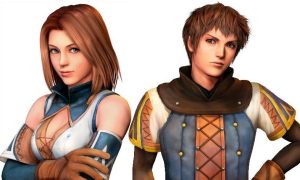 “A human being should be able to change a diaper, plan an invasion, butcher a hog, conn a ship, design a building, write a sonnet, balance accounts, build a wall, set a bone, comfort the dying, take orders, give orders, cooperate, act alone, solve equations, analyze a new problem, pitch manure, program a computer, cook a tasty meal, fight efficiently, die gallantly. Specialization is for insects.”-Robert A. Heinlein
“A human being should be able to change a diaper, plan an invasion, butcher a hog, conn a ship, design a building, write a sonnet, balance accounts, build a wall, set a bone, comfort the dying, take orders, give orders, cooperate, act alone, solve equations, analyze a new problem, pitch manure, program a computer, cook a tasty meal, fight efficiently, die gallantly. Specialization is for insects.”-Robert A. Heinlein
For obvious reasons, humans exist in between the two extremes of Dwarves and Elves. Humans are us, and because of that, they are the “standard” for fictional characters. Humans aren’t too strong, too religious, too anything ( those are reserved for the other races ), which is also why most video games make them the most statistically balanced race. As such, the relationships humans tend to have with their fantastic counterparts are ones that help them to define themselves. In Campbellian narrative, humans are the children who embark on a quest to become men, which often necessitates them to reconcile what’s lacking within them.
In Lord of the Rings, the rejuvenation of men is something which falls upon the shoulders of Aragorn, who at first chooses to forsake kingship. The power of Men is generally questionable in the series: Denethor is a paranoid idiot and Theoden is brainwashed for a part of the second film. Despite this, they are the only race that can truly lead Middle Earth into the future. The Dwarves are mostly dead, and the Elves are too transient to really care. The rejuvenation and continuation of the world is dependent on Men redeeming themselves, with Aragorn as the firebrand. In the trichotomy, Men are defined by their progression. While the other races assist, they lead.
One can’t help but see the “western-centricness” aspects of this relationship; Dwarves ( based on Irish, Scottish, and Russians ) and Elves ( based on Asians and Native Americans ) are clearly coded as “foreign”, so humans default into WASPs: White Anglo-Saxon Protestants ( sometimes without the protestantism ). This parallels how America and Britain often view other countries as often a nation of “sidekicks” to their divine journey of expansion. Whenever some shit goes down, they are the only ones that can save the day,especially if Steven Seagal is present. Western struggles aren’t plights, they are character defining challenges. It’s only when other nations struggle that they can be seen as just inherently deficient, with only the intervention of white men as a way to grow. As terrible as this sounds, Aragorn and Men in general are the “mighty whiteys” of Middle Earth. To elaborate, the trope of the “mighty whitey” originates in 18th and 19th century adventure fiction when European men were exploring uncharted areas and subsequently realizing that they can do anything better than anybody.
The Phantom by Lee Falk
Aragorn, for what it’s worth, is one of the most benign versions of this trope. Despite eventually becoming their superior, the films always cast him as the calm medium between his companions. He has the martial ability of Gimli, the mysticism of Legolas, and even the humility of Frodo. His success is at least partially due to his acquaintanceship with them. Perhaps this is what makes Aragorn so important, he coheres the disparate natures of the three races, which allows him to unite all of Middle Earth. When Frodo decides to ferry the ring to Mordor, Aragorn is the first to agree to help him, with Gimli, Legolas, and the others following suit. Along the way, Gimli, a man with good reasons to hate Elves, forges a friendship with the particularly Elven Legolas. And in turn, Legolas, who at one point in The Two Towers is skeptical of the idea that the ordinary humans of Gondor could defend themselves, eventually stands among the many humans who bow down to the christened Aragorn. The trichotomy of Dwarves,Humans, and Elves creates a commentary on how disparate cultures can work together to achieve a progressive end.
For more insights into Dwarves,Elves, and Humans:
http://tvtropes.org/pmwiki/pmwiki.php/Main/OurDwarvesAreAllTheSame http://tvtropes.org/pmwiki/pmwiki.php/Main/OurElvesAreBetter http://tvtropes.org/pmwiki/pmwiki.php/Main/SpaceElves http://tvtropes.org/pmwiki/pmwiki.php/Main/CantArgueWithElves http://tvtropes.org/pmwiki/pmwiki.php/Main/ScrewYouElves http://tvtropes.org/pmwiki/pmwiki.php/Main/ElvesVersusDwarves?from=Main.ElvesVsDwarves http://tvtropes.org/pmwiki/pmwiki.php/Main/FiveRaces
